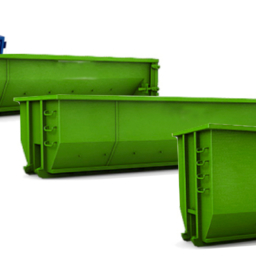Be Careful What You Throw Away
In todays technology driven, modern world, identity theft has become a large issue in people’s personal and professional lives. Companies in particular carelessly throw away sensitive documents, documents containing bank information, personal information and more could be thrown away without a second thought, and picked up by the wrong person. Companies could potentially put their clients and customers at risk if they do not dispose of their sensitive documents properly.
Safeguarding Business Relationships
Companies may hire security specialists who find the weakness in the company’s security system, usually focusing on cybersecurity. However, far to often they overlook their paper documents and the value of their contents. Companies that have their customers and clients personal information need to take the extra step to ensure any documents containing personal information are disposed of properly. If a customer’s identity and personal information become compromised by a company’s irresponsible disposal method, that company could potentially be held accountable for damages made.
Risking Your Personal Identity
Just as large companies use safeguard methods to destroy documents containing sensitive information, you should too. Shredders are a good choice to destroy documents and render them unusable by anyone who may dig them up, some may opt for a more thorough choice like burning the documents in an incinerator.
Personal identity theft can arise from various documents that some people throw away without a second thought, including:
- Receipts
- Bank statements
- Credit card convenience checks
- Old checkbooks
- Utility bill statements
- Discarded, intact checks
These are just a few possible examples, the best thing to do is to shred anything that you suspect could even lead to a possible compromise of your identity if it were to fall into the wrong hands.
Setting Up a System
An important part of managing records is to put a good system in place which allows you to easily spot what records to keep and what to dispose of. You should put time aside yearly or quarterly to move documents through the system properly. This will allow you to free up space and easily access important information. You can also move important documents into electronic storage and then dispose of the paper copies.
If you do decide to move important information onto a form of digital storage, you will also need to properly protect that information and dispose of it properly when the time comes.
Remember that as you dispose of documents that the identifying information must always be removed or marked out on all the documents you throw out.
Creating a clear set of guidelines and aligning the disposal policies throughout the business / in your home will ensure that the decision to destroy is taken out of the hands of individual employees and will minimize the risk of a data breach. Whether intentional or unintentional, leaked information can be preyed upon by criminal groups in order to commit fraud and identity theft crimes. It’s important to maintain regular secure disposal of paper waste, proper organization and maintenance of stored records as well as an efficient and sound process for destroying outdated records that are no longer needed.















